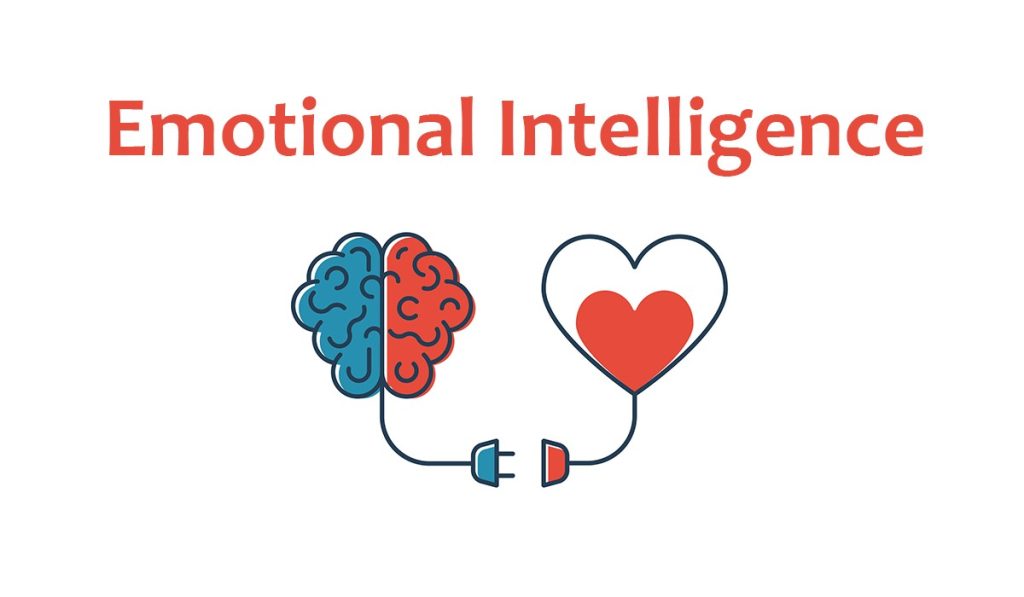
What is Emotional Intelligence (EQ) and Why It Matters in Leadership
Emotional intelligence, often referred to as EQ, is the ability to understand, manage, and influence emotions in oneself and others. It involves recognizing emotional responses, regulating them, and using this awareness to enhance interpersonal relationships. In leadership, emotional intelligence is a critical skill. This is because it allows leaders to connect with their teams on a deeper level. Leaders with high EQ can navigate complex social dynamics, motivate their teams, and respond effectively to challenges.
Improving leadership with emotional intelligence helps leaders build stronger relationships, fostering trust and cooperation among team members. When leaders are emotionally intelligent, they can empathize with their employees, offering support and guidance during difficult times. This emotional connection creates a positive work environment, improving employee engagement and loyalty. Leaders who understand the emotions driving their teams can better address concerns, ultimately leading to more effective and collaborative team management.
Moreover, emotional intelligence plays a key role in decision-making and conflict resolution. Leaders who are attuned to their emotions can make more rational decisions under pressure, avoiding reactive or impulsive actions. By recognizing and managing the emotions of others, they can also resolve conflicts in a way that fosters understanding rather than division. As a result, improving leadership with emotional intelligence is essential for anyone looking to strengthen their leadership abilities and cultivate a productive, harmonious team environment.
The Key Components of Emotional Intelligence for Leaders
The key components of emotional intelligence—self-awareness, self-regulation, motivation, empathy, and social skills—are essential for effective leadership. Self-awareness allows leaders to recognize their emotions and how they affect their thoughts and actions. Leaders who are self-aware can better understand their strengths and weaknesses, which improves decision-making and leadership effectiveness. This heightened awareness enables them to adapt their communication and approach based on the emotional context.
Self-regulation, another crucial component, involves managing emotions, especially in stressful situations. Leaders who can control their emotions maintain composure and make thoughtful decisions even under pressure. This ability helps create a stable environment for their teams, as employees feel more secure when their leaders handle challenges with calmness and control. Motivation, the third component, drives leaders to achieve goals with passion and commitment. Leaders with strong intrinsic motivation inspire their teams to pursue high standards, fostering a culture of excellence.
Empathy, a core aspect of improving leadership with emotional intelligence, enables leaders to connect with their team members on a deeper level. Empathetic leaders can understand and share the feelings of others, which helps in addressing concerns and creating a supportive work environment. Finally, strong social skills allow leaders to effectively communicate, resolve conflicts, and build relationships. Leaders with well-developed social skills are better at collaboration and fostering teamwork, ensuring the entire organization moves toward common goals.
By mastering these five components, leaders enhance their ability to inspire and guide their teams. Improving leadership with emotional intelligence strengthens not only individual relationships but also overall team performance, leading to a more cohesive and productive work environment.
How Emotional Intelligence Improves Decision-Making and Conflict Resolution
Emotionally intelligent leaders excel at making informed, balanced decisions because they are attuned to their own emotions and those of others. By recognizing how emotions influence their thought processes, they avoid impulsive reactions and take a more thoughtful approach. Leaders with high emotional intelligence are better able to weigh options calmly, even in high-pressure situations, allowing them to make more rational and effective decisions. They also consider the emotional impact of their decisions on the team, fostering a culture of trust and collaboration.
When it comes to conflict resolution, improving leadership with emotional intelligence plays a pivotal role. Emotionally intelligent leaders approach conflicts with empathy and understanding, seeking to understand the perspectives and emotions of all parties involved. This ability to empathize helps them address the root causes of the conflict rather than just surface-level issues. By focusing on understanding and finding common ground, emotionally intelligent leaders can resolve disputes in ways that strengthen relationships rather than create further division.
Moreover, emotional intelligence allows leaders to remain calm and composed during disagreements, preventing escalation. By demonstrating empathy and active listening, they create an environment where team members feel heard and valued. This approach encourages open communication and leads to more constructive outcomes. Overall, improving leadership with emotional intelligence enhances both decision-making and conflict resolution, helping leaders guide their teams through challenges while maintaining harmony and morale.
The Role of Empathy in Building Trust and Fostering Team Collaboration
Empathy plays a vital role in building trust and fostering collaboration within teams, especially as part of emotional intelligence. When leaders demonstrate empathy, they show that they understand and care about their team members’ perspectives, challenges, and emotions. This helps build trust, as employees are more likely to feel valued and respected. Trust is the foundation of any strong team, and when leaders cultivate it through empathy, they create a positive, open environment where people feel safe to express themselves.
Empathy also improves communication. By actively listening and considering the feelings of others, leaders can address concerns more effectively. This leads to clearer, more productive conversations where misunderstandings are minimized. Additionally, when leaders communicate with empathy, team members feel heard, which encourages them to be more open and honest in their interactions. This transparency is key to resolving conflicts and fostering collaboration, as it helps the entire team align toward common goals.
Improving leadership with emotional intelligence through empathy not only strengthens individual relationships but also enhances teamwork. When leaders empathize with their team members, they are better able to identify and support different working styles, strengths, and needs. This creates a collaborative culture where team members are encouraged to leverage their unique talents and work together. By fostering this type of environment, leaders can inspire greater cooperation and drive more effective collaboration, ultimately leading to higher productivity and better results for the organization.
Practical Strategies for Developing Emotional Intelligence as a Leader
Developing emotional intelligence as a leader requires deliberate practice and self-awareness. One practical strategy for improving leadership with emotional intelligence is mindfulness. By practicing mindfulness, leaders can become more aware of their emotions and how those emotions impact their decisions and interactions with others. Mindfulness encourages leaders to pause and assess their emotional responses, leading to more thoughtful, measured actions. This approach reduces impulsivity, especially in high-pressure situations, and helps leaders remain calm and focused.
Another key strategy is active listening. Leaders who actively listen to their team members show genuine interest in understanding their perspectives and concerns. This involves giving full attention during conversations, avoiding interruptions, and asking clarifying questions. Active listening not only builds stronger relationships but also helps leaders gain valuable insights that can improve decision-making and conflict resolution. It encourages open dialogue, which fosters trust and collaboration within the team.
Self-reflection is also essential for improving leadership with emotional intelligence. Leaders should regularly assess their emotional reactions and leadership behaviors to identify areas for growth. This can involve journaling or seeking feedback from peers and team members. By reflecting on how they handle different situations, leaders can pinpoint their emotional triggers and work on improving their responses. Over time, this self-awareness helps leaders manage their emotions more effectively, enhancing both their leadership abilities and their relationships with others. Through mindfulness, active listening, and self-reflection, leaders can significantly improve their emotional intelligence and lead their teams with empathy, clarity, and confidence.
Conclusion
In conclusion, improving leadership with emotional intelligence is essential for fostering strong relationships, effective communication, and team collaboration. Leaders who develop emotional intelligence are better equipped to navigate challenges, resolve conflicts, and make informed decisions. By practicing mindfulness, active listening, and self-reflection, leaders can enhance their emotional awareness and improve their ability to connect with others. As a result, teams become more engaged, motivated, and productive. Emotional intelligence is not just a valuable asset but a crucial skill for successful and empathetic leadership.

